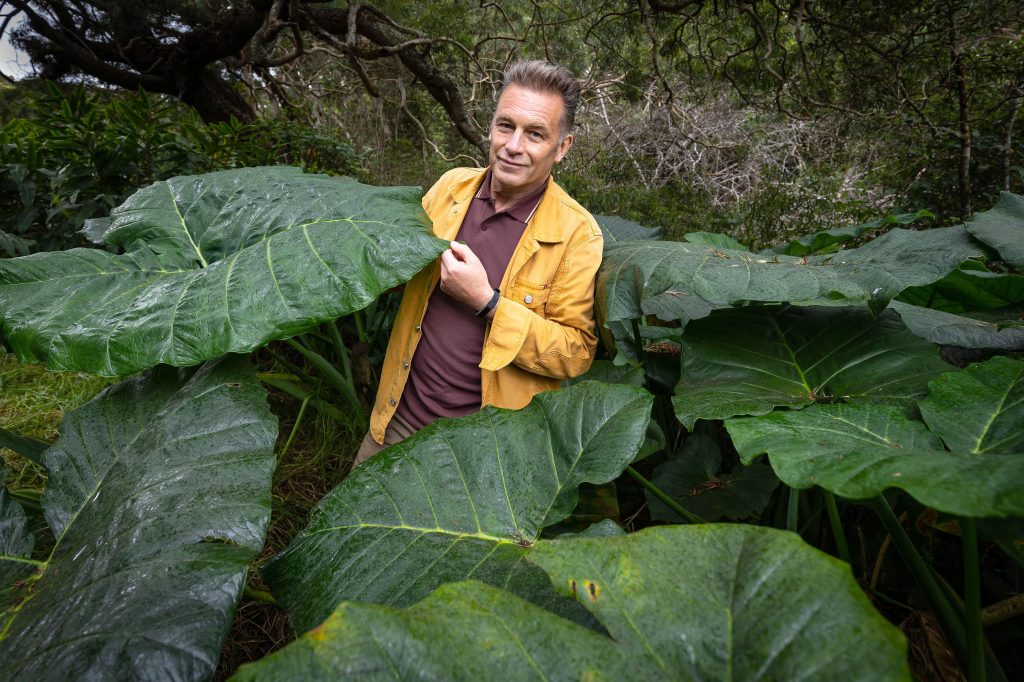EXCLUSIVE: The BBC has tied with PBS on a Chris Packham-fronted series about evolution, as the corporation reveals it has doubled its number of blue-chip science shows.
Evolution will tell the story of the millions of generations that gave rise to animals today, tracking one animal per episode. Species in focus will range from the bat, whose ultrasonic hearing makes it one of the deadliest hunters on the planet, to the peacock and its magnificent feathers, to the kangaroo, which owes its impressive leaping not to its legs but to its teeth.
Packham, who also hosted last year’s Earth for the BBC, will take viewers back in time to chart evolution utilizing advances in genetic analysis and CGI.
“This is new, shiny and immediately accessible,” BBC Head of Science Tom Coveney told Deadline. “It’s full of animal-based facts but also because there are millions and millions of species it gives the opportunity for endless variety, twists and turns. So it is accessible but blue-chip.”
With David Attenborough slowing down a tad, Coveney celebrated Packham as a “leading natural history and science presenter” for the BBC, whose communication skills plus zoology background make him the perfect fit for an evolution show. Evolution will stick to science, avoiding the Darwinian theory’s role in religion that has at times made it a controversial topic, Coveney added.
The BBC’s head of natural history Sreya Biswas recently branded that genre “saturated” and beset by “huge” production costs. But, having recently brought back Walking with Dinosaurs, Coveney said BBC science is full steam ahead and has in fact doubled its number of blue chips of late to around one per year. Earth aired last year, Solar System with Brian Cox will premiere later in 2024, Human fronted by presenter Ella Al-Shamahi is slated for 2025 and Evolution should arrive on small screens in 2026.
Coveney’s science team has not been given any extra budget for the push but is instead prioritizing blue-chips over other types of series and partnering more frequently with co-producers, the commissioner added.
“We used to do blue-chip once every two or three years but they work so well on iPlayer and bring such a broad audience that we are trying to do one per year,” he added. “This is also a sign of the health of co-pro relationships.”
Coveney said his team was “quite nervous” that last year’s well-rated Earth would be “too dense” for the everyday viewer, but breakout ratings of more than 3M viewers for the first ep proved otherwise. “I don’t think anyone is quite doing specialist science programing like we are doing,” he added, attempting to draw a line between the BBC and competitors such as Netflix and YouTube.
PBS, with which the BBC collaborates regularly, is once again aboard, and Coveney said the network’s priorities “overlap with ours brilliantly.” “There is something around science and public service programing at a time when we are bombarded with news and misinformation on social media that makes the pursuit of truth really important, and on this we are aligned with PBS,” he said. BBC Studios is producing and distributing Evolution, which is co-produced by the Open University. EPs are Andrew Cohen and Rob Liddell, the executive in charge for PBS is Diana El-Osta and for science strand Nova the executive producers are Julia Cort and Chris Schmidt.
‘Disease X’

A laboratory technician works at a Covid-19 testing facility in Lianyungang in China’s eastern Jiangsu province. Image: STR/AFP via Getty
Evolution leads a BBC science slate that also features a Horizon show led by Chris van Tulleken charting the international hunt for the source of the next global pandemic, Coveney revealed. Produced by STV Studios, Disease X is the name the World Health Organisation gives to the yet-to-be discovered virus most likely to cause the next pandemic, and the show will see van Tulleken travel the globe meeting the scientists racing to stop it from happening.
“These people haven’t stopped,” added Coveney. “Covid was a ‘Disease X’ so what we don’t realize is there was this army of people in the country trying to find out more about viruses. The concept is terrifying but the work of the scientists is inspiring.”
The BBC has also greenlit a Jim Al-Khalili-led one-off titled Secrets of the Brain and a third season of The Secret Genius of Modern Life with Hannah Fry, one of the contributors to Channel 4’s general election coverage.

